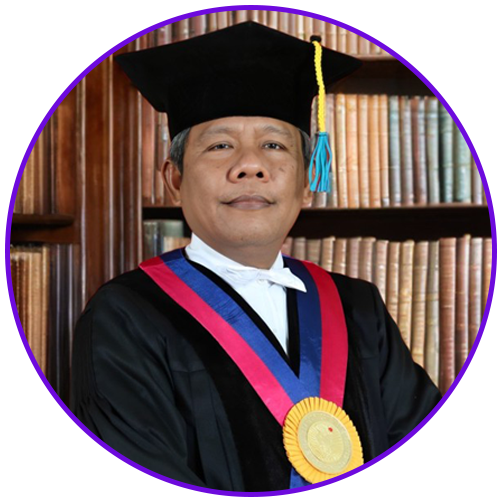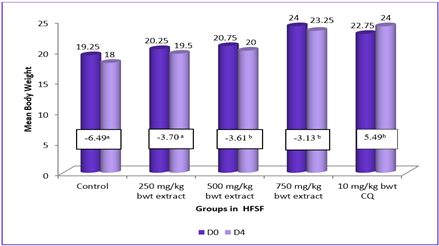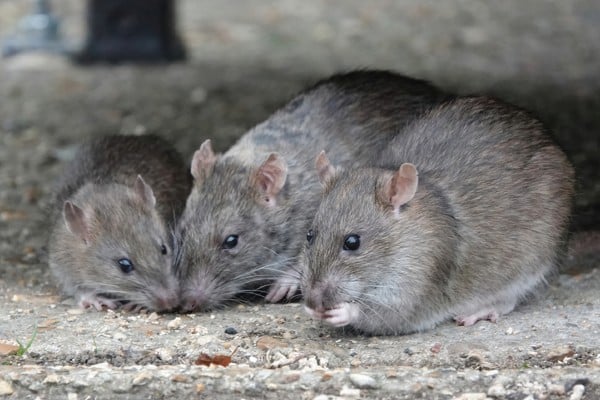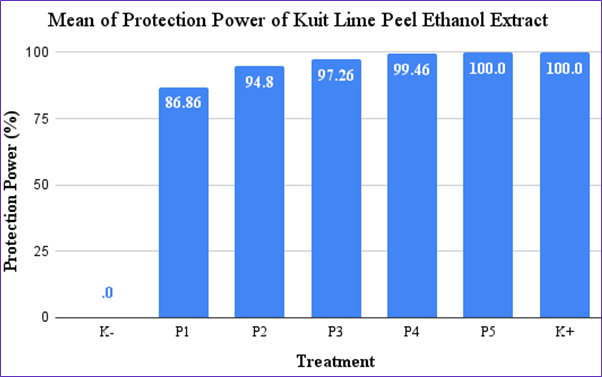Accredited in

Journal of Parasite Science (JoPS) P-ISSN (2599-0993) and E-ISSN (2656-5331) are peer-reviewed scientific journals published by the Division of Veterinary Parasitology, Faculty of Veterinary Medicine, Universitas Airlangga. in collaboration with the Indonesian Society of Veterinary Parasitology and the Indonesian Veterinary Medicine Association.
Journal of Parasite Science (JoPS) accepts manuscripts in Original Research, Review Articles, and Case Reports. and Since Vol 8 No 1 March 2024, JoPS has been decided to change the referencing style to Harvard reference format 1 style
Journal of Parasite Science (JoPS) is a highly respected journal of veterinary parasitology indexed in major databases, such as the Science and Technology Index (SINTA). JoPS has been accredited by the Indonesian Ministry of Education, Culture, Research and Technology in 2023 (SINTA 4) 230/E/KPT/2022.
Journal of Parasite Science (JoPS) focuses manuscripts on the areas of epidemiology, pathogenesis, diagnosis, treatment, and control of infectious parasite diseases. Journal of Parasite Science (JoPS) is published twice a year: March and September.
Journal of Parasite Science (JoPS) focuses on both basic and applied Parasitology on Human and Animals.
The scope of Journal of Parasite Science (JoPS) are:
a. Parasites Biodiversity
b. Wildlife, Vertebrate, Invertebrate Parasites
c. Host-parasite relationships of intrinsic biological interest to those of social and economic importance predominately in veterinary, human medicine and agriculture aspect.
All accepted articles will be published on an open access basis and will be freely available to all readers with worldwide visibility and coverage.
The editor can reject the manuscript at this stage:
1. initial submission if it does not fit the focus and scope of the journal;
2. peer-review process decisions;
3. the revision of the manuscript does not conform to peer-reviewed advice;
4. The author does not follow the editor's instructions according to deadlines.
The editor will send notification of rejection of the manuscript to the author through OJS.
The decision of the editorial board is absolute and free of conflicts of interest.
The article review process usually takes average 6-8 weeks. This review period depends on the editors and reviewers duration in reviewing the manuscript.
Journal of Parasite Science published every 2 times a year, in March and September.
This journal provides immediate open access to its content on the principle that making research freely available to the public supports a greater global exchange of knowledge.
This work is licensed under a Creative Commons Attribution-NonCommercial-ShareAlike 4.0 International License.
This journal utilizes the CLOCKSS system to create a distributed archiving system among participating libraries and permits those libraries to create permanent archives of the journal for purposes of preservation and restoration.
To avoid plagiarism, all submissions are screened using TURNITIN before undergoing the review process. The manuscript was passed if the similarity is less than 20%. This journal can not accept any plagiarism in any manuscripts or it will be rejected immediately.
Plagiarism-free works should match these requirements:
1. Citing other people's publications (by paraphrasing them effectively) in one's own words as opposed to copying and pasting or typing the original source word for word, and documenting the reading sources in accordance with scientific writing guidelines.
2. Citing the original source of any ideas that you use that come from other people, whether they are written down orally or in published works, or from other kind of media
Background
Authors could refer to International Standards for Editors and Authors (http://publicationethics.org/) by COPE (Committee on Publication Ethics) for policies that are not stated in these instructions.
Submission declaration and verification
Contributors
Each author is required to declare his or her individual contribution to the article: all authors must have materially participated in the research and/or article preparation, so roles for all authors should be described. The statement that all authors have approved the final article should be true and included in the disclosure.
Publication and Authorship
All persons listed as authors should qualify for authorship. Such authorship should be limited to persons who have contributed significantly to the conception, design, execution, data acquisition, data analysis or interpretation of the manuscript. All other persons who have participated in certain important aspects of the research but do not qualify as authors, then they should be acknowledged. Authorship is a responsibility of the corresponding author; he or she should ensure that all appropriate co-authors are included in the manuscript. The corresponding author, on behalf of all co-authors, should submit a form stating that all of them have seen and approved the final version of the manuscript and have agreed to submit it for publication.
Responsibilities of Authors
Authors are obliged to follow in the peer review process set by Journal of Parasite Science (JoPS). Authors are responsible to provide original and accurate data (no plagiarism, no fraudulent data). Concerning the manuscript submitted, and to provide the data when they are requested. The submitted manuscript should not be under consideration or accepted for publication elsewhere. Where parts of the data have been published elsewhere, the sources have to be acknowledged or cited accordingly. When reproducing data from other sources, proper citation and permission are required. Authors should ensure that studies involving animals are performed according to animal ethics and welfare. Any potential conflict of interest has to be declared. Authors are requested to be willing to publish corrections, clarifications, retractions, and apologies when needed.
Responsibilities of Reviewers
Reviewers are requested to assist in improving the quality of the manuscript through an objective review process within a scheduled period of time and to contribute to the decision-making process on the manuscript. If reviewers find any published or submitted content similar to that under review, the editor has to be informed. Reviewers should have no conflict of interest with respect to the research, the authors and/or the research funders. Any confidentiality of the information supplied by the editor or author should be maintained.
Responsibilities of Editors
Editors have complete responsibility and authority to accept or reject an article. They should have no conflict of interest with regard to articles they accept or reject. Editors should be objective and fair when conducting their duties without making any discrimination on gender, ethnic, religion, political view or geographical origin of the authors. Editors should also accept manuscripts on the basis of academic merit and without commercial influence. The anonymity of reviewers should be preserved by editors.
Publishing Ethics Issues
Authors, reviewers, and editors should maintain the integrity of the academic record during the whole process of publication. Business needs should be precluded from compromising intellectual and ethical standards.
Human Ethics Issues
Journal of Parasite Science is committed to the highest ethical standards in research involving human participants. All studies must adhere to the principles of the Declaration of Helsinki and have prior approval from an institutional ethics committee or review board, with the approval number and institution clearly stated in the manuscript. Authors must confirm that written informed consent was obtained from all participants, or from parents, guardians, or legal representatives in the case of vulnerable populations. Participant privacy and confidentiality must be protected, and no identifying personal data or images may be published unless essential and accompanied by explicit consent. Manuscripts must include an ethics statement confirming that approval was obtained and informed consent was secured, and the editorial board reserves the right to decline publication if ethical integrity is in doubt.
Animal Ethics Issues
Animal ethics and welfare guidelines must be followed when conducting research on experimental animals. It's important to treat experimental animals humanely and to try to minimize any suffering they may experience. Regulations on a local, national, and international level must be followed when using experimental animals. The trial is conducted in accordance with animal ethics and welfare, and the writers are required to include a statement that includes the consent number and the name of the ethical authority.
The guidelines established by the institutional or international animal ethics committees, as well as local laws and regulations, should be followed when conducting experiments. An unambiguous statement indicating the review and ethics committee approval for each study (please supply ethical approval numbers, if relevant) should be included in the Material and Methods section of all studies using animal subjects. In cases when there is uncertainty about the application of acceptable processes, editors retain the power to reject papers.
To maintain the integrity, transparency, and credibility of scientific publishing, Journal of Parasite Science requires that all parties involved in the editorial and publication process—including authors, reviewers, editors, and journal staff—fully disclose any potential conflicts of interest. A conflict of interest (COI) may arise when academic judgment or objectivity is influenced by secondary factors such as financial benefits, personal relationships, or institutional affiliations.
For Authors
Authors must clearly declare any financial or non-financial interests that could be perceived to affect the outcomes, interpretation, or conclusions of their work. Examples include research funding, employment, consultancies, stock ownership, honoraria, expert testimony, patent applications, and grants. A “Conflict of Interest Statement” must be included in every manuscript. If no conflict exists, the following statement should be used: “The authors declare that they have no conflict of interest.”
For Editors
Editors must refrain from handling any manuscript where a personal, academic, or financial relationship may create a conflict. Decisions must be based strictly on academic quality and relevance to the journal’s scope. Any editor with a conflict must disclose it to the Editor-in-Chief, who will reassign the manuscript to another editor.
For Reviewers
Reviewers are expected to disclose potential conflicts prior to accepting a review assignment. They should decline to review manuscripts if recent collaborations, personal ties, financial interests, or competitive positions could compromise their objectivity. All reviews must remain impartial, fair, and confidential.
For Journal Staff
Staff members with access to submitted manuscripts must not use unpublished materials for personal gain or share them with unauthorized individuals. Any financial, institutional, or personal interests that could influence journal operations must be reported to the publisher.
Management of Undeclared Conflicts
If undisclosed conflicts are identified after publication, Journal of Parasite Science reserves the right to issue corrections, expressions of concern, or retractions, in line with COPE guidelines.
Commitment to Transparency
By implementing this COI policy, Journal of Parasite Science safeguards ethical publishing standards, ensures the credibility of parasitology research, and strengthens the trust of its readership.
Commitment to Transparency
Journal of Parasite Science supports transparency, reproducibility, and accessibility in research. Authors are encouraged to share the data, materials, and protocols underlying their manuscripts to allow validation and further scientific development.
Author Responsibilities
Authors must include a Data Availability Statement in their manuscript, clearly describing whether data are available, and if so, how they can be accessed. Acceptable forms of data sharing include deposition in a recognized public repository, providing data upon reasonable request, or including data as supplementary material. If there are restrictions due to ethical, legal, or privacy reasons, authors must clearly explain these limitations.
Editorial Rights
The editorial board reserves the right to request access to underlying data during the review process if necessary for verification. Failure to provide data or sufficient explanation for unavailability may affect the editorial decision.
Ethical and Legal Considerations
When sharing data, authors must ensure compliance with ethical standards, including participant confidentiality, informed consent, and applicable regulations. Data containing sensitive or personal information must be anonymized before sharing.
Commitment to Rigorous Review
Journal of Parasite Science upholds the highest academic standards through a strict peer review process. Every manuscript submitted is first screened by the editorial team to ensure alignment with the journal’s scope and adherence to formatting guidelines before entering the review stage.
Double-Anonymous Review Process
The journal implements a double-anonymous peer review system, meaning that both reviewers and authors remain anonymous to each other throughout the process. This policy ensures impartiality, minimizes bias, and maintains fairness in manuscript evaluation. Each submission is reviewed by a minimum of two independent experts in the relevant field to ensure balanced and comprehensive feedback.
Editorial Independence
Editorial decisions—acceptance, revision, or rejection—are based exclusively on the scholarly merit, originality, ethical compliance, and relevance of the manuscript, without influence from financial or personal interests. The Editor-in-Chief and the editorial board make the final decision after carefully considering the reviewers’ recommendations.
Reviewer Responsibilities
Reviewers are expected to provide objective, constructive, and timely evaluations. They must treat the manuscript as confidential, avoid conflicts of interest, and give detailed feedback that can help improve the quality of the paper.
Author Responsibilities
Authors are required to revise their manuscripts in accordance with reviewer feedback, using tracked changes and providing a response letter that addresses each point raised.
Confidentiality
All manuscripts and review reports are treated as strictly confidential. Editors and reviewers are prohibited from using unpublished data or findings for personal benefit.
Appeals and Complaints
Authors may submit an appeal with strong justification if they disagree with an editorial decision. Any concerns about the review process or allegations of misconduct will be investigated following COPE guidelines.
Journal of Parasite Science is committed to maintaining the highest ethical standards in academic publishing. Allegations of misconduct—including plagiarism, data fabrication, falsification, improper authorship, duplicate publication, or unethical research practices—will be taken very seriously.
All cases will be handled in accordance with the COPE Guidelines.
If misconduct is suspected:
1. The Editor-in-Chief will conduct a preliminary review.
2. The authors will be contacted and asked to provide an explanation.
3. If the concerns are validated, actions may include rejection of the manuscript, notification of the authors’ institution, or retraction of the published article.
4. Sanctions may also be applied, such as banning the responsible authors from making future submissions.
Authors may appeal an editorial decision if they believe:
1. The decision was based on a factual error.
2. Significant information was overlooked.
3. The review process did not comply with the journal’s policies.
To submit an appeal:
1. Authors must provide a clear and detailed explanation of the reason, with supporting evidence if available.
2. Appeals should be submitted by email to jps@fkh.unair.ac.id within 30 days of the editorial decision.
3. The Editor-in-Chief will review the appeal, and if necessary, an independent editorial board member not involved in the original decision will also assess it.
4. The final decision will be communicated in writing, and the outcome of the appeal is final.
Journal of Parasite Science welcomes complaints regarding any aspect of the journal’s operations, including editorial practices, ethical standards, or staff conduct. Complaints must be respectful and supported by evidence.
1. Complaints should be submitted in writing to jps@fkh.unair.ac.id.
2. The Editor-in-Chief will acknowledge receipt within seven working days.
3. An impartial investigation will be carried out, and the result will be communicated to the complainant within 30 days.
4. If the issue cannot be resolved internally, it may be referred to the Faculty of Veterinary Medicine, Universitas Airlangga, for further review.
By enforcing these policies, Journal of Parasite Science ensures fairness, accountability, and transparency in its editorial process. The journal’s mission is to safeguard the credibility of parasitology research and to provide authors, reviewers, and readers with a reliable and trustworthy platform for scholarly communication.
Journal of Parasite Science is committed to safeguarding the integrity and accuracy of the scholarly record. If issues are identified in published articles—whether reported by authors, readers, editors, or third parties—the journal will take appropriate steps in line with the Committee on Publication Ethics (COPE) guidelines.
All concerns related to published content should be submitted to: jps@fkh.unair.ac.id.
1. Minor errors that do not affect the overall reliability of the study (such as typographical mistakes, inaccuracies in author affiliations, or small data errors) may be corrected through the issuance of a Correction Notice.
2. Each Correction Notice will be linked to the original article and will clearly describe the nature of the correction.
3. The original published version will remain accessible, with the correction transparently documented.
1. When serious concerns are raised about a published article but conclusive evidence is not yet available, the journal may issue an Expression of Concern.
2. This serves to inform readers that potential issues have been identified and are under investigation.
3. After the investigation, the notice may be followed by a correction or retraction, or it may be removed if the concerns are not substantiated.
A published article may be retracted if:
1. There is clear evidence of misconduct, such as plagiarism, data fabrication, or falsification.
2. The findings are deemed unreliable due to error or misconduct.
3. The work has been published elsewhere without proper acknowledgment (duplicate publication).
4. The research is determined to involve unethical practices.
5. Retracted articles will remain available but will be clearly labeled as “Retracted” and linked to the retraction notice.
6. The retraction notice will provide a clear explanation for transparency.
1. Concerns should be reported to jps@fkh.unair.ac.id.
2. The Editor-in-Chief will first conduct an initial review.
3. If necessary, an independent investigation will be carried out, involving the editorial board and, when appropriate, the authors’ institution.
4. Based on the findings, the journal will issue a Correction, an Expression of Concern, or a Retraction.
5. All actions will be communicated to the authors and documented publicly.
Through this policy, Journal of Parasite Science ensures that the scholarly record remains accurate, transparent, and reliable. The journal adheres to international best practices to protect both the integrity of scientific research and the trust of its readership.
Independence of Editorial Decisions
Journal of Parasite Science guarantees that financial sponsorship does not affect editorial independence. All editorial decisions—including peer review, acceptance, or rejection of manuscripts—are determined solely by the scholarly quality, originality, ethical compliance, and relevance to the journal’s scope.
Disclosure of Author Funding Sources
Authors are required to disclose any financial support received for their research, including grants, institutional assistance, or industry sponsorship. Each manuscript must contain a Funding Statement that specifies the sources of financial support. If no external funding was obtained, authors must clearly state: “This research received no external funding.”
Transparency and Accountability
In accordance with COPE and ICMJE recommendations, the journal upholds transparency in research and publishing. Authors must disclose any potential conflicts of interest linked to funding within their manuscript. If the source of funding raises ethical concerns, the editorial board reserves the right to request clarification or to reject the submission.
Contact Information
For questions or concerns related to funding policies, please contact the editorial office at jps@fkh.unair.ac.id.
a. Article Submission Fee: USD 0
No fee required for manuscript submission
b. Article Processing Charge: USD 0
No fee required for Article Processing
This journal was sponsored by Division of Veterinary Parasitology, Faculty of Veterinary Medicine, Universitas Airlangga, Surabaya, Indonesia
The Journal of Parasite Science (JoPS) does not accept advertising in any form, either in print or online. The journal is fully funded by Universitas Airlangga and does not generate revenue from commercial advertisements.
This policy ensures that editorial independence, integrity of published content, and transparency are maintained without any influence from commercial interests.
Initiation to establish this journal in 2017 by Division of Veterinary Parasitology, Faculty of Veterinary Medicine, Universitas Airlangga, Surabaya, Indonesia




Author's Guideline Letter of Originality Human Ethics Animal Ethics Template of Article Copyright Transfer Agreement
| Semua | Sejak 2019 | |
|---|---|---|
| Kutipan | 306 | 290 |
| indeks-h | 8 | 7 |
| indeks-i10 | 4 | 4 |







Call for Paper to be Publish in Vol. 9 No. 2 September 2025 and Vol. 10 No. 1 March 2026 | No Fee required for Manuscript Submission and No fee required for Article Processing Calling Parasitology Experts: Become an Editorial Board Member or Reviewer for the Journal of Parasite Science! Call for Paper to be Publish in Vol. 9 No. 2 September 2025 and Vol. 10 No. 1 March 2026 | No Fee required for Manuscript Submission and No fee required for Article Processing Calling Parasitology Experts: Become an Editorial Board Member or Reviewer for the Journal of Parasite Science! Call for Paper to be Publish in Vol. 9 No. 2 September 2025 and Vol. 10 No. 1 March 2026 | No Fee required for Manuscript Submission and No fee required for Article Processing Calling Parasitology Experts: Become an Editorial Board Member or Reviewer for the Journal of Parasite Science! Call for Paper to be Publish in Vol. 9 No. 2 September 2025 and Vol. 10 No. 1 March 2026 | No Fee required for Manuscript Submission and No fee required for Article Processing Calling Parasitology Experts: Become an Editorial Board Member or Reviewer for the Journal of Parasite Science! Call for Paper to be Publish in Vol. 9 No. 2 September 2025 and Vol. 10 No. 1 March 2026 | No Fee required for Manuscript Submission and No fee required for Article Processing Calling Parasitology Experts: Become an Editorial Board Member or Reviewer for the Journal of Parasite Science! Call for Paper to be Publish in Vol. 9 No. 2 September 2025 and Vol. 10 No. 1 March 2026 | No Fee required for Manuscript Submission and No fee required for Article Processing
